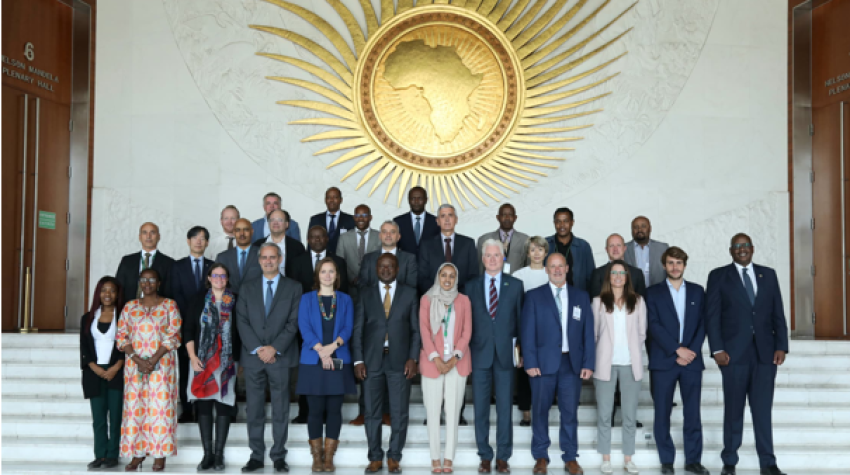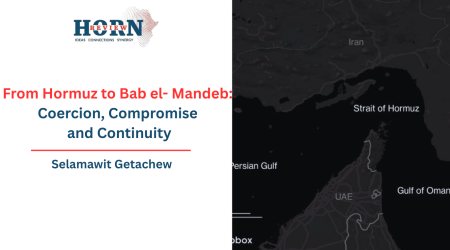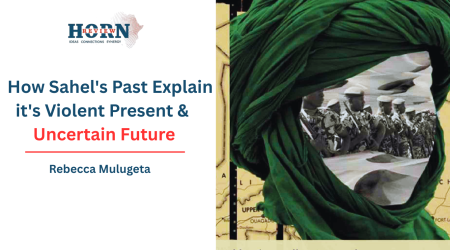
30
Jul
Africa’s Disarmament Reality: The AU Fellowship on Non‑Proliferation – The Start of a Broader Continental Momentum
Following a decision by the African Union (AU) Peace and Security Council in May 2024, the AU officially launched its Fellowship Programme on Disarmament & Non‑Proliferation on 15 July 2025. More than a symbolic initiative, the Fellowship marks a deliberate move by the AU to finally shift from aspirational rhetoric to concrete capacity-building in the field of arms control—aiming to cultivate a new generation of African negotiators, peacemakers, and experts who can anchor the continent’s security posture in expertise, rather than external dependency.
While the programme is new, it builds on earlier efforts: the African Nuclear-Weapon-Free Zone Treaty (Pelindaba Treaty) has been active since 2009, and African participation in global arms-control forums, though limited, has persisted. What the Fellowship seeks to address is longstanding: the deficit in technical negotiation capacity, limited research infrastructure on proliferation pathways, and weak integration of academic output into policy-making. Africa’s presence in international disarmament negotiations often rests on a handful of individuals—many backed by external donors rather than domestic institutions. This Fellowship is meant to begin correcting that imbalance.
The design of the initiative makes this clear. Selected participants—diplomats, AU special envoys and mediators, civil society actors, academics, policymakers, and practitioners—are now receiving trainings on multilateral arms control frameworks and diplomatic negotiation simulations. This isn’t just theoretical, participants are expected to develop the skills to broker mutual agreements between states, support regional stability, curb weapon proliferation, and promote peaceful nuclear applications.
Significantly, the AU is not starting from zero. Over the recent years, there have been piecemeal initiatives at the national level—export control legislation in uranium‑rich countries, capacity‑building engagements in partnership with UNODA or regional bodies, and bilateral knowledge exchanges. What’s been missing is a continental framework to unify these scattered efforts, and now Africa has built the scaffolding—signaling a coherent continent-wide capability.
Going forward, the Fellowship’s success will depend on embedding it into broader institutional layers already active across the continent. In that sense, realistic expectations are essential. The programme will likely evolve slowly, with early cohorts contributing modestly but meaningfully—drafting policy briefs, supporting legal frameworks, and building informal peer‑networks of practitioners. But for Africa to move from reactive postures to strategic agency in disarmament, those networks must eventually expand into centres of excellence located in capitals like Addis Ababa, producing peer-reviewed research and policy-oriented analysis.
To build on the AU Fellowship and allow it to mature into a continental force, three things are crucial. First, targeted investment is needed to establish pan‑African research networks in disarmament and non‑proliferation—funded centres, mentorship models, and consistent academic output matched with policy dissemination. Second, Fellows should be expected to deliver a publishable case study or policy brief—grounded in lived African realities—on topics like uranium governance, dual‑use export controls, or radiological security. This bridges the persistent gap between diplomacy and domestic accountability. Third, partnerships must be authentically co‑governed, collaborations with global heavyweight institutions like SIPRI, Monash CND, and UNODA should avoid donor-driven agendas and instead amplify African agency and agenda-setting.
This programme is a significant step forward—it centralizes and professionalizes capacity. But it must connect to a broader architecture: national safeguards legislation, academic research networks, parliamentary oversight, and civil society visibility. That is where real influence arises.
Strategically speaking, Africa has some credibility as a normative actor in disarmament. If the continent wants to move from symbolic declarations to structural influence, the Fellowship must catalyse a wider ecosystem. The greatest risk is that it becomes an isolated cadre of trained individuals. The greatest reward will be if those individuals become nodes within an institutional web, pushing African priorities into treaty language, safeguarding protocols, and global disarmament policymaking.
In the end, Africa has already laid much of the groundwork. The AU Fellowship consolidates that groundwork into an intentional continental platform. Its value will depend on connections—between fellowship participants, research institutions, governments, and civil society. If those connections evolve thoughtfully, Africa will shift from being a zone of normative potential to a strategic actor capable of shaping non‑proliferation norms from within.
By Sina Yigzaw, Researcher, Horn Review
References
- African Union Commission, ‘Official Launch of the African Union Fellowship Programme on Disarmament and Non‑Proliferation’ (Press Release, 15 July 2025).
- AllAfrica/Capital FM, ‘AU Rolls Out Fellowship On Disarmament and Non‑Proliferation’ (16 July 2025).










